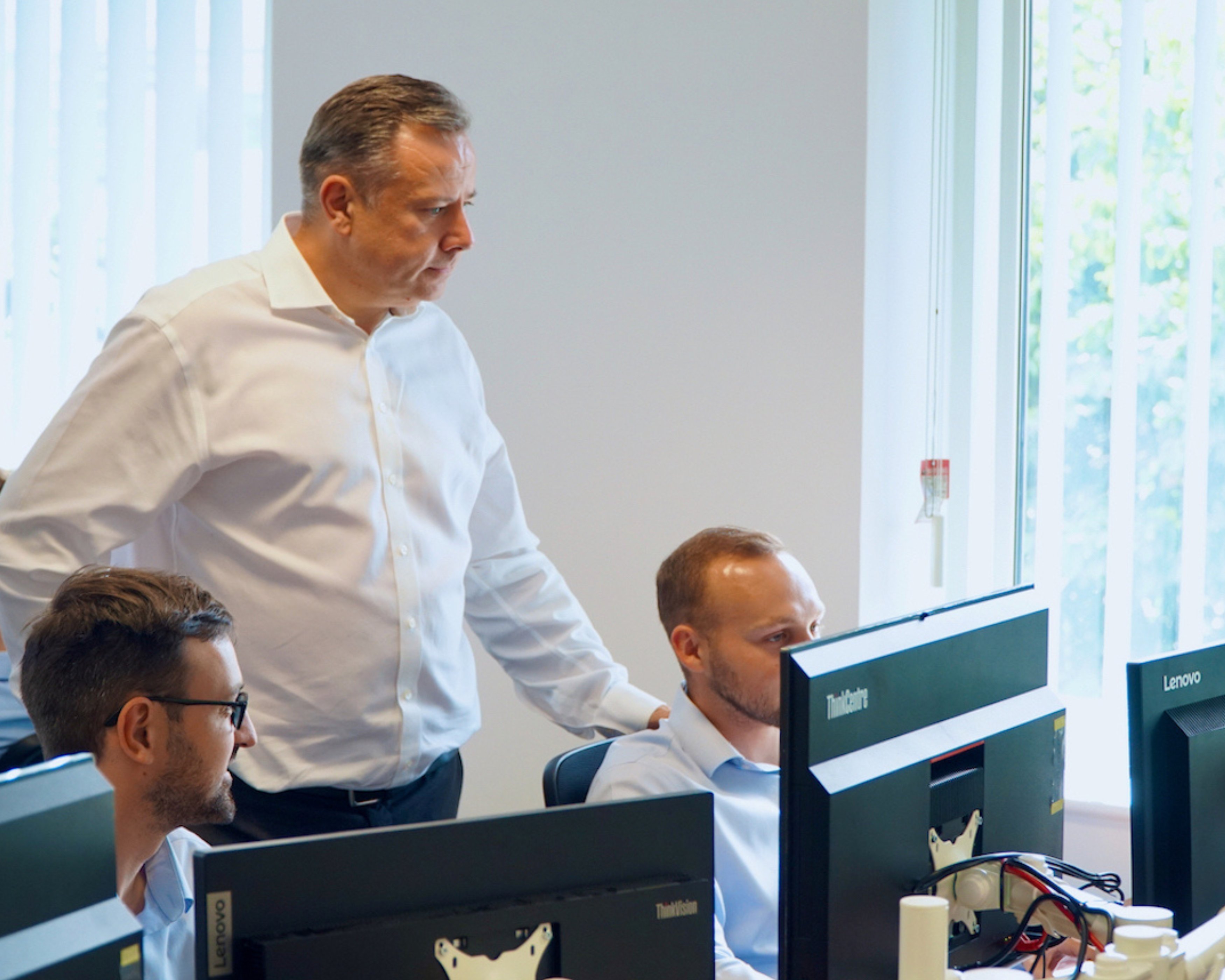Last Updated on: 23rd April 2024, 12:13 am
In 2024, Mergers and Acquisitions (M&A) could see a new era amidst economic uncertainty. Scott Dylan, an industry pro and co-founder of Inc & Co, looks into how unstable markets might not be all bad. He uses the latest economic trends to show how M&A could benefit during these uncertain times.
2023 was tough, with slow growth and rising prices challenging investors. But 2024 looks promising, especially in private equity. With $2.59 trillion ready from last year, deals could really pick up. Could this mean a big turnaround? Dylan thinks managing M&A risks smartly could lead to success.
Scott Dylan suggests M&A activity could increase due to closer buyer and seller price expectations. This shift is a sign of creativity and adaptability in the M&A world. Dylan believes combining caution with boldness could turn economic challenges into chances for wise investors.
Economic Uncertainty M&A: Navigating the Challenges
In uncertain economies, knowing how to deal with risk is key for industry experts. The need to master M&A strategies is crucial for growing in tough times. Market trends show that M&A deals in the US often drop, showing how resilient the market must be. It also highlights that recovery can take years, showing the lasting effect of economic changes on M&A.
With private equity dry powder at peak levels, firms have a big chance to invest wisely. But, they must plan carefully to avoid risks. At the same time, US companies have saved more money than in decades, readying for strategic moves. This hints at a positive outlook for future M&A actions.
The US federal funds interest rate plays a huge role in M&A deals. As interest rates affect capital availability, they shape how many deals happen. Also, with US companies borrowing more, finding a balance between growth and financial health is crucial.
Now, with lower corporate tax rates, businesses can relook at their M&A tactics. History shows that buying during downturns can lead to big gains. With lower costs and values during these times, smart investors can find good deals.
Around the world, CEOs see the chance to change things quickly, especially in the Americas. They are ready to transform their businesses amid uncertainty. The push to modernise via M&A is largely due to how tech changes markets.
As deal values shift, reassessing assets is vital. A surge in activist campaigns points to a hunt for excellence in strategy and operations.
Leaders are focusing on enhancing performance and selling parts of their businesses for transformation. This strategy shows a careful yet hopeful view of AI’s role in improving efficiency and growth.
Most CEOs believe their companies will grow despite ongoing challenges. They’re ready to tackle rising costs with strategic plans, expecting to pass some costs to consumers.
Deal values in Africa saw a decrease recently, leading to cautious M&A steps there. Yet, renewable energy attracts strong foreign investments.
M&A in sectors like health care in Africa and tech in Europe shows market changes. Despite protective moves, local M&A is growing, highlighting a trend towards regional deals.
With lots of capital ready for M&A, private firms and family offices are set to make strategic moves. Navigating through unstable times, the ability to adapt and manage risks will set apart the winners in the unpredictable M&A landscape.
A Brighter Outlook for Private Equity in 2024 Amidst Economic Fluctuations
In 2024, the UK’s private equity scene looks promising. The nation has over 67 million people and a strong economy worth $3.495 trillion. This makes it a great place for smart investors. The UK’s economy is showing growth. With a GDP increase of 0.5% and unemployment at just 3.8%, it’s very resilient. This good economic health is a plus for private equity, especially in mergers and acquisitions.
The UK is doing well in sectors like machine tools, electronics, and pharmaceuticals. These sectors have pushed exports up to £870.4 billion. Private equity can find good chances to invest in these areas, playing to the UK’s strengths. The car and power generator sectors also offer big opportunities for smart deals.
The market for initial public offerings (IPOs) is expected to bounce back. A renewed interest in going public is seen as global markets get better. This revival in IPOs could really help the private equity world. Firms with ready cash are watching for these signs closely.
The UK is seen as financially solid, which boosts confidence. It has brought in £2.002 trillion of inward foreign direct investment (FDI). For private equity, this demonstrates the UK’s power to attract and keep big investments. As 2024 comes around, investors are ready. They’re looking to make the most of their deals in mergers and acquisitions, at the right time.
Conversations on economic growth are common in boardrooms. The UK’s sturdy economy and the positive private equity setting provide a great opportunity for wise investments. The private equity world knows how a stable economy and successful deal-making go hand in hand. They’re ready to use low interest rates and sector growth to their advantage.
The Surge of Technology Sector Mergers and the AI Revolution
The tech mergers and acquisitions scene is growing fast, especially in the TMT sector. About 70 percent of companies plan to use AI technology by 2030. This growth in digital mergers promises a $13 trillion boost to the global economy, potentially increasing global GDP by 1.2 percent each year.
AI is key to this growth, but less than half of big companies might use AI widely. This suggests gaps may appear within the global economy, the corporate world, and among workers. The TMT sector’s growth is driven by both tech advancements and strategic AI use, which could triple economic growth by 2030.
Countries leading in AI are set to gain big, possibly boosting their economies by up to 25 percent more than now. A G7 report says it’s vital to align policies for better global supply chains and digital tech laws.
However, pushing for tech mergers has its hurdles. The G7 highlights the need for global cooperation, especially in AI. This approach can help absorb economic shocks, making economies more resilient. But with AI changing industries, companies must carefully integrate innovation with upcoming EU AI laws.
The US TMT sector’s focus on sustainability predicts a strong comeback. Trends show AI is critical for implementing strong business strategies, ready for economic challenges. Thus, the future of the global economy relies on tech mergers, with AI paving the way for growth and shaping the economic future.
Impact of Market Predictions on Private Equity Strategies
Market predictions are shaping how UK private equity firms plan for 2024. The value of deals coming into the UK dropped from £191 billion in 2022 to £109 billion in 2023. But the number of deals stayed about the same. This shows the UK is still an attractive place for investment. It also shows how private equity needs to adapt and innovate to succeed in a changing market.
The landscape for deals in the UK is changing, with more private buyouts. Latham & Watkins, a law firm, has been key in big deals like the Abcam buy for $5.7 billion. They have advised on many complex deals. This shows the depth of legal expertise that supports strategic investments.
Activist investors and private equity buyers are looking for new ways to finance deals. They are using careful market analysis and new strategies to stay ahead. Changes in laws and regulations also make them think carefully about their investments. This includes new rules on national security and foreign investments.
Private equity is getting more into secondary markets and has lots of money to invest – about US$1.2 trillion. Even though there are fewer deals globally, firms are focusing on investing for the long-term. They know that making good investment decisions is about more than just following market predictions.
In Europe, big fundraising has reached €86 billion, mostly in large funds. This shows a big chance for investment. And though access for regular people to invest in private equity seems limited, there is great potential in the market. The FCA is opening up new opportunities with a new listing regime. This invites private equity firms to use their insights to meet market challenges.
M&A Shifts in Residential Services and Consumer Health
In the fast-changing world of M&A, the residential services M&A market is evolving a lot. The UK is seeing big changes due to its ageing population and the ongoing need for property care. In the third quarter of 2023, there were 362 M&A deals, down from 479 in the last quarter. Meanwhile, the consumer health sector is staying strong. It shows that people expect a lively market return. A closer look reveals an increase in residential services M&A, with £2.2bn in deals going abroad and £5.4bn coming in. This shows a strong interest in working across borders.
The need for maintenance and focus on consumer health are key in M&A deals. Big pharma is looking to buy smaller biotech companies. They want to fill gaps in their offerings. At the same time, private equity firms are ready to buy healthcare assets. Consumers want better health options, which is pushing the rise of consumer-centric healthcare models. This change leads to more investment in health concerns and the need for property maintenance.
Market stats show growth, with domestic M&A worth £2.6bn in Q3 2023. This is a bit less than before but still suggests growth year-on-year. Somerset County Council’s higher care fees show rising operational costs. Yet, they also hint at possible improvements in service quality. The increase in care home occupancy from 79.4% in 2021 to 83.4% in 2022 is a good sign for care home operators.
Investor interest is high, despite economic issues. With the over-65 population up by 19% in a decade and many vacancies in care jobs, investment in residential and consumer health sector is growing. These areas are ripe for M&A activity. They offer answers to the need for better and more efficient healthcare and housing services.
Private equity is very active, with investors holding £60-70bn for investments in Europe. They’re eyeing distressed hospital deals and the telehealth market. Also, keeping patient care and pricing in check is vital in healthcare M&A. As we head towards 2024, the scene is set for more deals. This is spurred by the promising GLP-1 drug market, which might reach sales above US$100 billion. Such prospects could lead to more consolidation and investment driven by innovation in the near future.
Revival of IPOs: Timing and Expectations for 2024
Looking ahead to 2024, we see signs of a significant IPO revival. Financial markets seem to be getting ready for more initial public offerings. This optimism is based on the hope that global market conditions will become steadier. There’s also talk that central banks might lower interest rates soon. Lower interest rates could make IPOs more successful, overcoming a big challenge.
There’s a growing feeling that the market is ready for new IPOs. Companies like Streaks Gaming are leading the way. They show how to launch successfully on the stock market. Behind the scenes, groups like The Palladium Group are preparing to support these IPOs. They prove that a strong public offering strategy is key to a good start.
Last year ended with about 21,500 deals made, worth $1.18 trillion. Even though there were fewer deals and less value than before, companies still want to grow. In places like India and Italy, companies have done well in making deals. The energy sector is especially strong in these activities. This shows that with the right focus, IPOs can succeed too.
2023 was tough for fundraising, with a 30% drop from 2021. Venture capital and infrastructure saw big declines. But buyout firms raised 30% more funds. This shows investors still want to put their money into promising ventures. This trend is important for the success of future IPOs.
Finally, as public and private market values adjust, and private capital soars, 2024 looks promising for IPOs. The hope is that new listings will show the value of public markets. They can drive growth and innovation.
Managing M&A Risks in Uncertain Economic Climates
In uncertain economic times, mastering M&A risks is key for both private equity firms and corporate buyers. There’s a sharp focus on finding value even when markets shake. High levels of ready money among private equity and big cash reserves for corporations show they’re set for bold moves that may change industries.
But, moving forward takes careful planning because of tough challenges. For example, a dip in the amount and worth of US deals shows the need for patience and smart choices. Deals now take longer to finish because there’s so much regulatory checking. This makes the process even harder.
Economic factors like US interest rates and high corporate debt play a part in making decisions. Even though banks are strong, slow recovery from downturns means being careful. Companies have to weigh risks carefully against the chance to make strategic buys at good prices.
Risks in strategy, finance, regulations, and talent are now more important in M&A. Everyone involved is doing deeper checks, looking at impacts on industry, workers, customers, and suppliers. With key issues like national security, data privacy, and climate change, cross-border deals get even more complex.
Looking ahead to 2024 shows how dynamic the market is. Firms are recovering from the pandemic amidst economic slowdowns and global issues. Deal making varies, but the drive to build strategic value shows business resilience. Now, managing risks is about more than protecting assets; it’s about creating value in a changing world.
Growth Opportunities in Leisure and Travel Amidst Economic Headwinds
The leisure sector, especially in travel, has maintained its growth despite economic challenges. It has seen consistent gains over the years, highlighting the resilience of travel demand. Even with economic concerns, people are still choosing to spend on travel, making it integral to their lives.
Flexible work arrangements have encouraged more travel. This trend, supported by high-income groups, is boosting luxury travel. It offers opportunities for growth in the sector through mergers and acquisitions.
Looking ahead to 2024, the travel industry is set for exciting changes. With corporate travel spending in the US expected to recover fully within a year, there is a sense of optimism. Travel companies are increasing their marketing budgets to attract more travelers.
Generational changes are also affecting the sector. The spending power of Gen Z and Gen Alpha is expected to triple by 2030. At the same time, technology like AI is making travel more customer-focused and efficient.
Despite a decrease in mergers and acquisitions, the luxury market has grown in 2022. It’s expected to reach €1.38 trillion, with the personal luxury goods sector alone at €353 billion. While China is recovering, India’s luxury market is set to grow significantly. Technology will also play a big role in boosting sales.
The future looks bright for the leisure sector. With a focus on health and well-being, there are many opportunities for smart investments. The sector’s resilience and potential for growth make it a promising area for mergers and acquisitions.
The Role of Regulatory Changes and Compliance in M&A
The way rules are changing is greatly affecting mergers and acquisitions. This is very true for financial companies. For example, over 50 groups were initially interested in Deutsche Bank’s asset management business. This shows that quality investments draw a lot of attention. Yet, making deals is becoming trickier. This is because buyers want strong protections, face bigger risks, and deal with stricter rules in mergers and acquisitions.
Now, following the rules is more important than ever. Buyers check up to five years of records to see if companies follow rules well and manage risks smartly. Deals often include terms about regulatory risks which shows how careful everyone is being. This careful checking helps protect against big risks. It also sorts out who owns what after the sale, like ideas and customer lists. Sorting out shared services, like HR and IT, is also key to a smooth change during mergers and acquisitions.
Companies that have to follow lots of rules are not just doing more deals; they also do better after announcing them. They see better results and make more money over time. Changes in rules help these deals work well and make companies more eager to bid, especially smaller ones. Companies facing many rules find fewer problems after merging. With good planning, they can meet new advertising rules and stay strong in the market.






